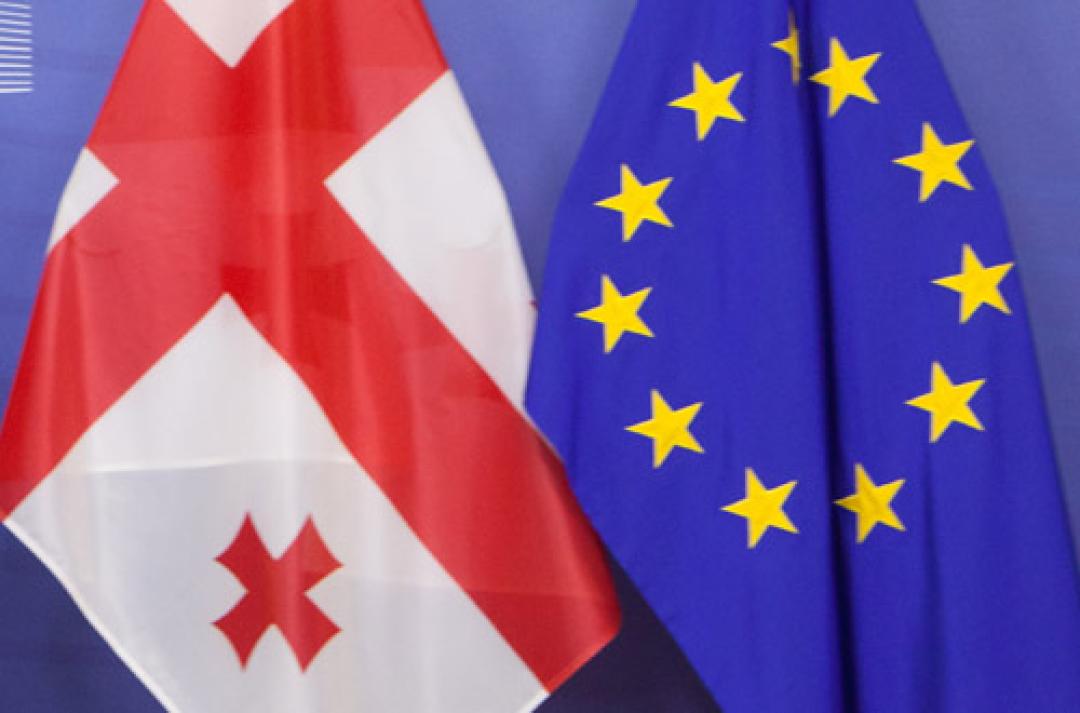
New EU Ambassador to Georgia on Twelve Recommendations, Second Front Against Russia, Criticism to MPs by Government and Deoligarchization

On September 20, Pawel Herczynski, the new Head of the European Union Delegation to Georgia, stated that the key to implementing the twelve recommendations the Council of the European Union established for Georgia to become a candidate is an inclusive process. Additionally, he called the claims that foreign forces were attempting to provoke conflict in Georgia rubbish.
"Although the government has a very ambitious plan to implement 12 conditions, it is for everyone across the political lines to build bridges and to work constructively in order to make progress in those 12 areas," he added. In this regard, the Ambassador pointed out that while the opposition must continue to be cooperative, the government must ensure inclusion. He emphasized that cooperation between the administration and the opposition is necessary to ensure progress. According to Ambassador Herczynski, the process should engage all interested parties, and the government should take into account the views of the OSCE/ODIHR, an election monitor, and the CoE/Venice Commission, an anti-corruption watchdog. In his words, this chance should be taken advantage of. "Therefore, Georgians should join together to create the bridges and transcend all divisions," he added. The Ambassador said, "It would be a really big error if this opportunity by the European Council, offered by the leaders of the European Union, to declare that Georgia has a European viewpoint and that Georgia is part of the European family, is wasted."
The charges that foreign forces are attempting to draw Georgia into a conflict and to establish a second front were denounced by the EU Ambassador as absurd and absolute rubbish. "The European Union is a project for world peace. Not long ago, we were awarded the Nobel Peace Prize. These claims are thus unfounded. I apologize for being as direct as I can be," he stated. The Ambassador added that for 14 years, the EU Monitoring Mission in Georgia has ensured that there is stability and there is progress when it comes to the breakaway regions, adding that the EU has always been Georgia's strongest ally in preserving its independence, sovereignty, and territorial integrity.
When asked about the criticism leveled by government officials against some MEPs, the EU Ambassador responded that criticism is always healthy but cautioned that when you want to become a member of the European family, you are usually very careful about how you describe this family member. "Even the President of the European Commission, Ursula von der Leyen, addressed Georgia's membership in the European family at her most recent State of the Union address just two or three days ago. So, we are discussing Georgia's attempt to reunite with her family. I thus anticipate that this will be the topic of discussion," the Ambassador added. He stated that Georgia is attempting to join the family of affluent, free, and democratic European nations.
On how the nation could implement the European Commission's advice on deoligarchization, the EU Ambassador said the problem is quite easy and this is not an issue that is only unique to Georgia. "There are vested interests, and industry has too much sway over politics," he said. "I believe that Georgia would be strengthened, would draw in foreign investment, and would ensure that our country is appealing to potential investors if wealthy businesses had less influence over politics," he added. The Ambassador added that Georgians must make that decision, and they genuinely hope that this matter will advance as well. The Ambassador highlighted that there are no names mentioned in the 12 suggestions when the question of whether the European Union is considering putting penalties on Bidzina Ivanishvili, founder of the ruling Georgian Dream party, was raised. He insisted, "We are discussing the procedure, but we are not naming any names." According to Ambassador Herczynski, their sanctions against Russia are the strongest ever when it comes to EU sanctions policy. "And since 27 states must all agree on a decision before it can be made, it must be made with great documentation and solid support," he added.
See Also


Simonyan: “Armenia Should Trade with Turkey and Azerbaijan Instead of Closing Borders”

Mirzoyan Meets US Deputy Assistant Secretary Joshua Huck

Azerbaijani President Holds Talks with UAE and German Business Delegations on Economic Cooperation

Grigoryan Confirms Armenia’s Readiness to Dissolve OSCE Minsk Group Upon Peace Treaty Signing

